Texas studio Moontower Design Build has built a “plant-based” cabin in Austin, featuring structural cross-laminated timber elements and a cork-clad façade.
Known as the Cross Cabin, the accessory dwelling unit measures 1,000 square feet (93 square meters) in an 8,000-square-foot (743 square meters) sloped yard that offers views of the horizon through the tree canopy.
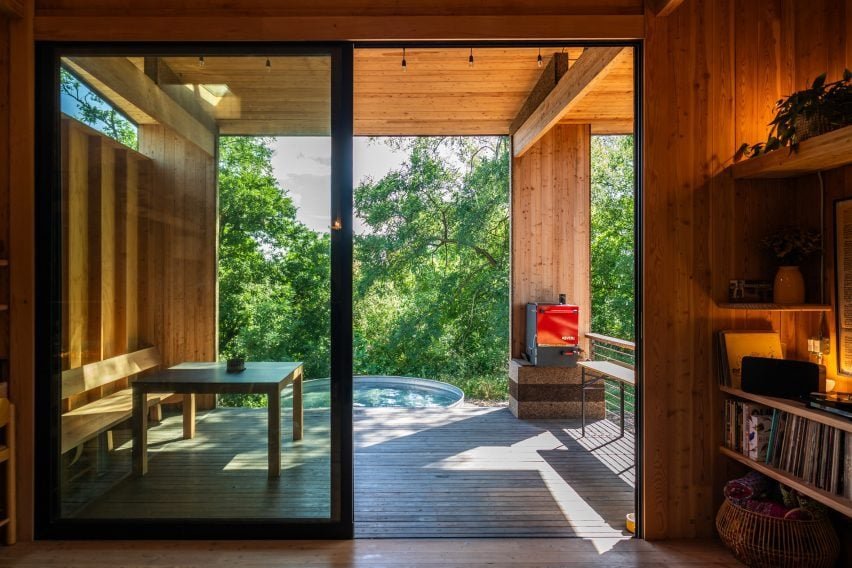
Moontower Design Build completed the cabin in 2023 in direct response to AIA Architecture & Design Materials’ commitment to center design on the holistic impact of a building.
Inspired by author Michael Pollan’s book Food Rules, which advocates moderate consumption of real foods with an emphasis on plants, Moontower Design Build prioritized materials that were not heavily processed or synthesized and were primarily plant-based.
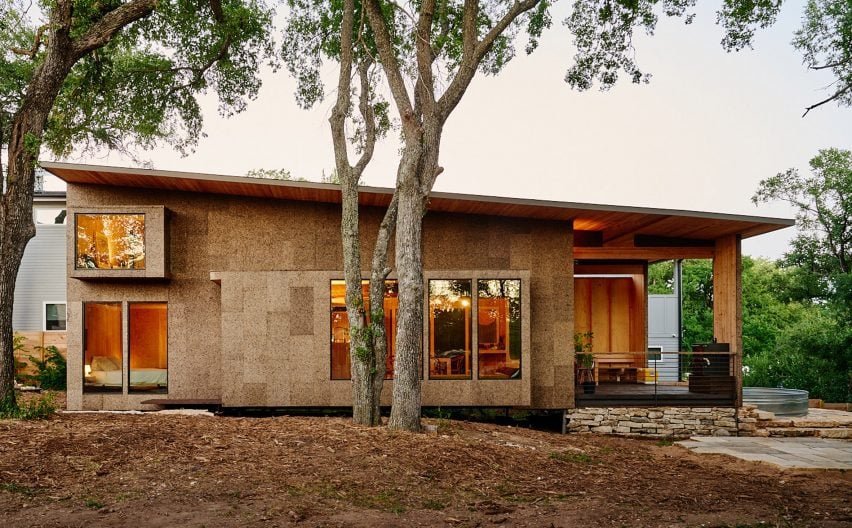
The team developed a material palette that created a compelling architectural experience, completed in 2023.
“These natural materials like wood and cork are featured repeatedly throughout the house in a way that provokes an unconventional sensory engagement with the building materials,” studio co-founder Greg Esparza told Dezeen.
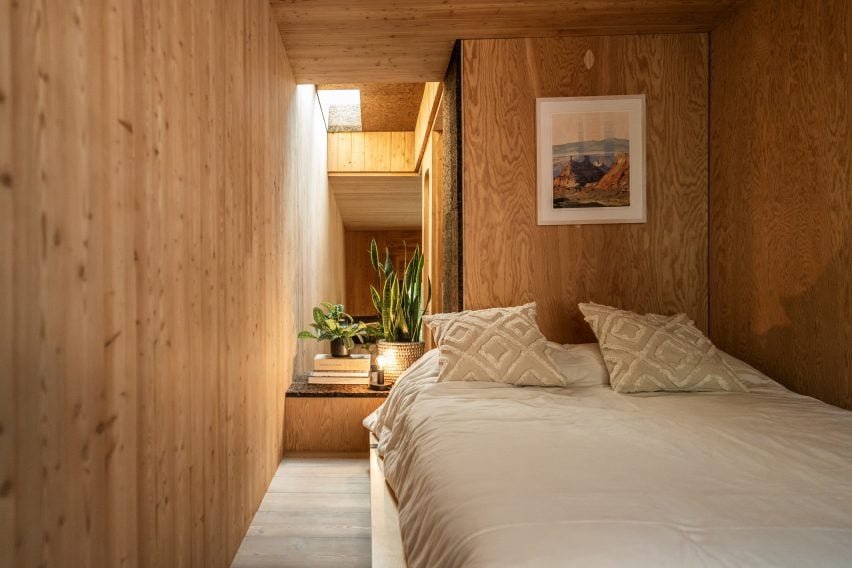
The cabin is made of a raised cross-laminated timber box “covered with plant-based insulation materials such as cork, hemp and wood fibre.”
Seen through the screen of surrounding trees, the rectangular facade of the two-story cabin resembles the bark of a tree, with fluctuating tones of silver, amber, brown and black cork cladding that will intentionally age over time.
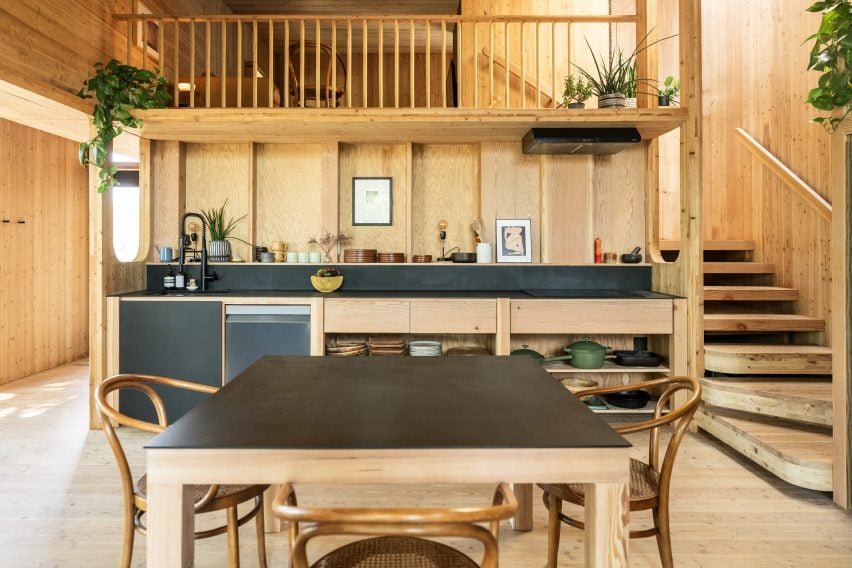
The box has a single-pitch roof that extends to shade bay windows, nooks and a large porch.
The cork-clad exterior gives way to a wood-centric interior with cross-laminated timber, solid sawn timber, plywood and heat-treated larch flooring.
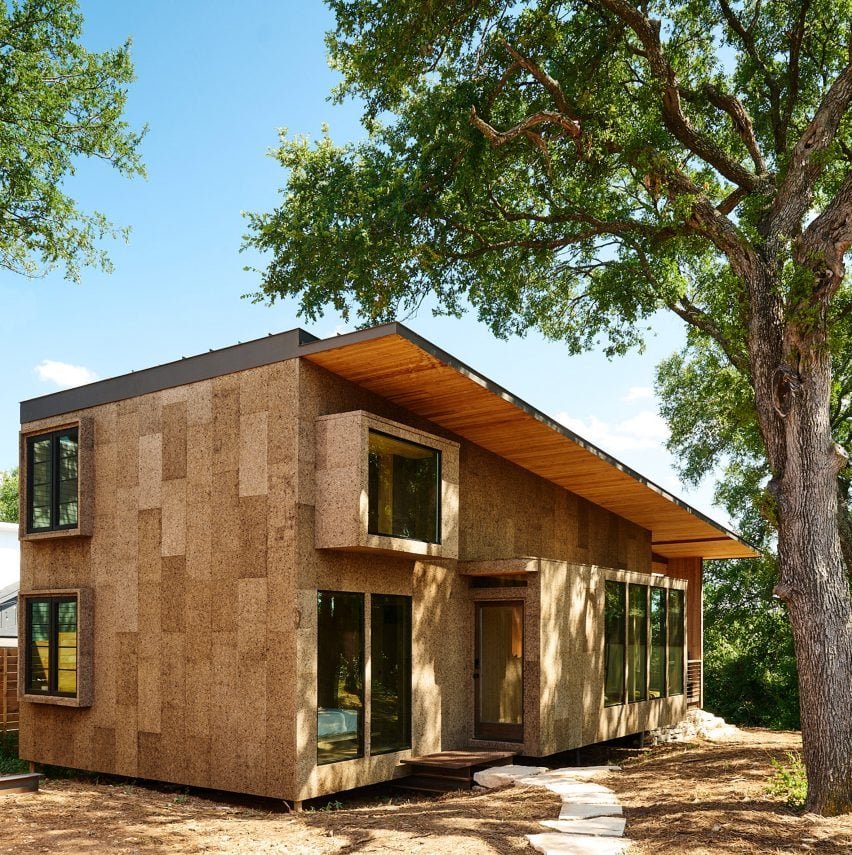
The various wood finishes have been left raw or treated with linseed oil. In addition, the interiors feature expanded cork – 100% cork bark – and a laminated recycled paper called Richlite.
The plant-based palette challenged the team to find creative solutions for different spaces—like shower liners—rather than relying on “default” materials like drywall, latex paint or tile throughout the home.
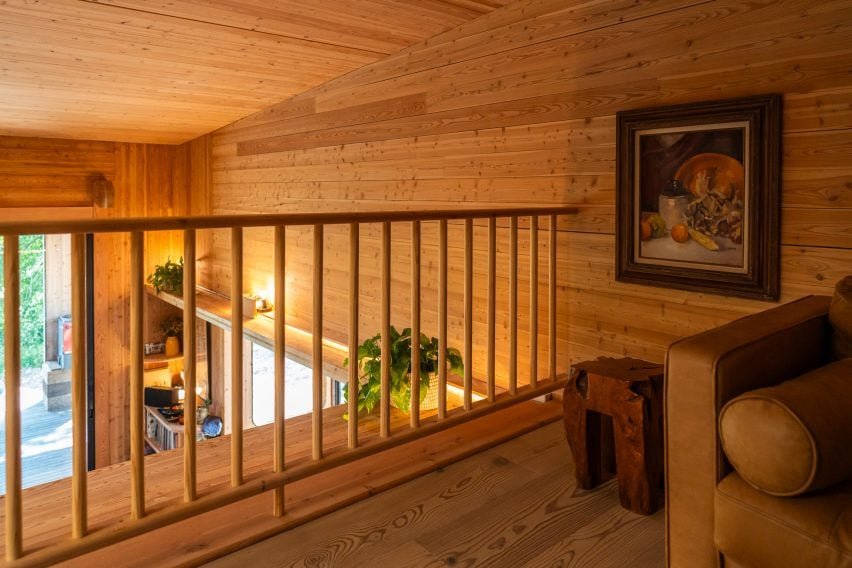
Esparza said the most common comment he receives is about how nice the interior smells because of the lack of polyurethane sealants.
“Thinking about smell, touch, heat and sound as critical design considerations alongside sight helped guide the design and reinforce the unique benefits of minimally processed natural materials,” he said.
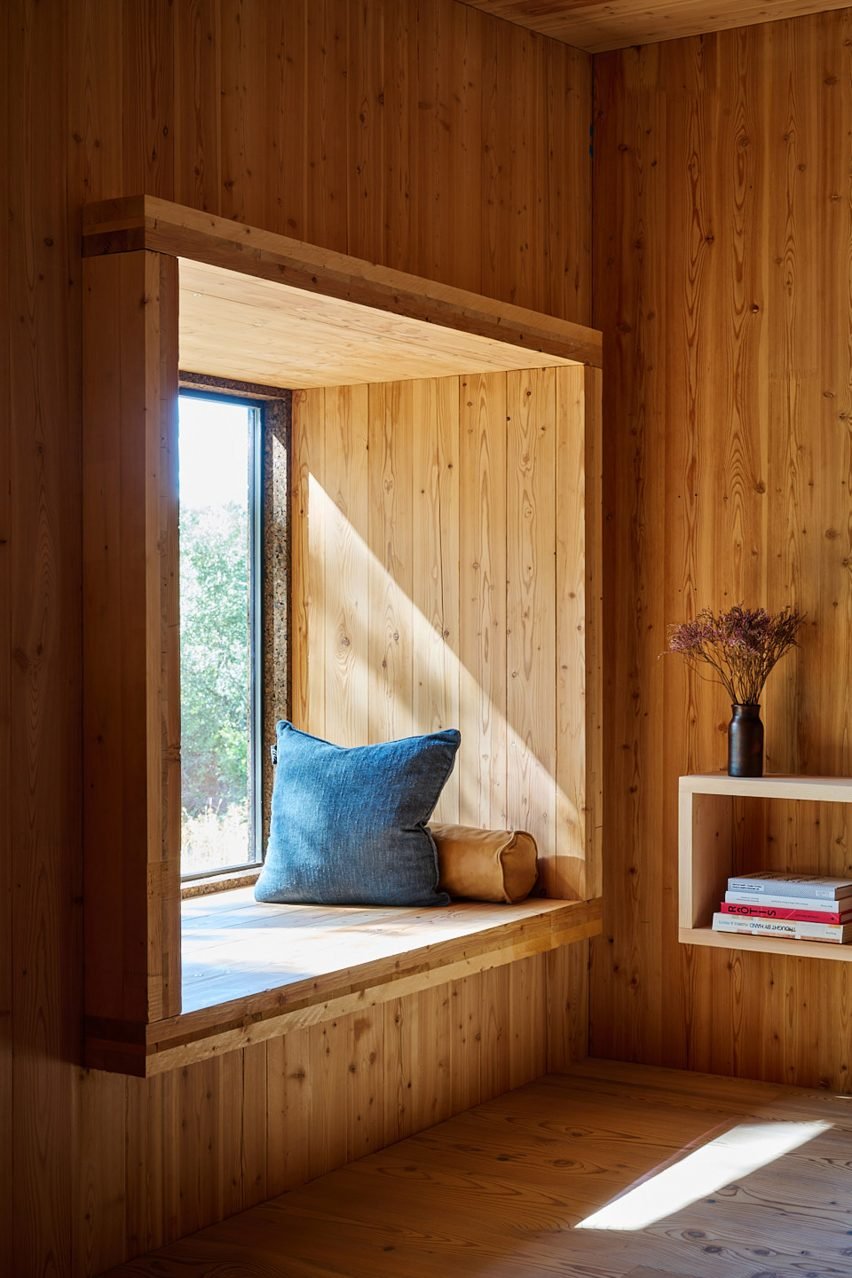
“When you are in an intimate-scale space and interacting with materials by touching, holding, pulling, and pushing them, there are many opportunities to appreciate the subtle qualities of materials like the delicate striations, slight iridescence, and rich color variations on the surface of cork or the pleasing texture of tree rings on a wooden floor or banister.”
In addition to scent and texture, the studio said the home interacts with light and shadow in a more natural way, referencing another layer of biophilic design.
“The intentional restriction of artificial lighting also means we are much more in tune with the weather and the qualities of outdoor light than we normally would be,” Esparza said.
“If it is nice and sunny outside, it is nice inside, if it is cloudy, the light is lower and more subdued, at sunset, the light inside takes on reddish and orange hues and long shadows stretch across the living room.”
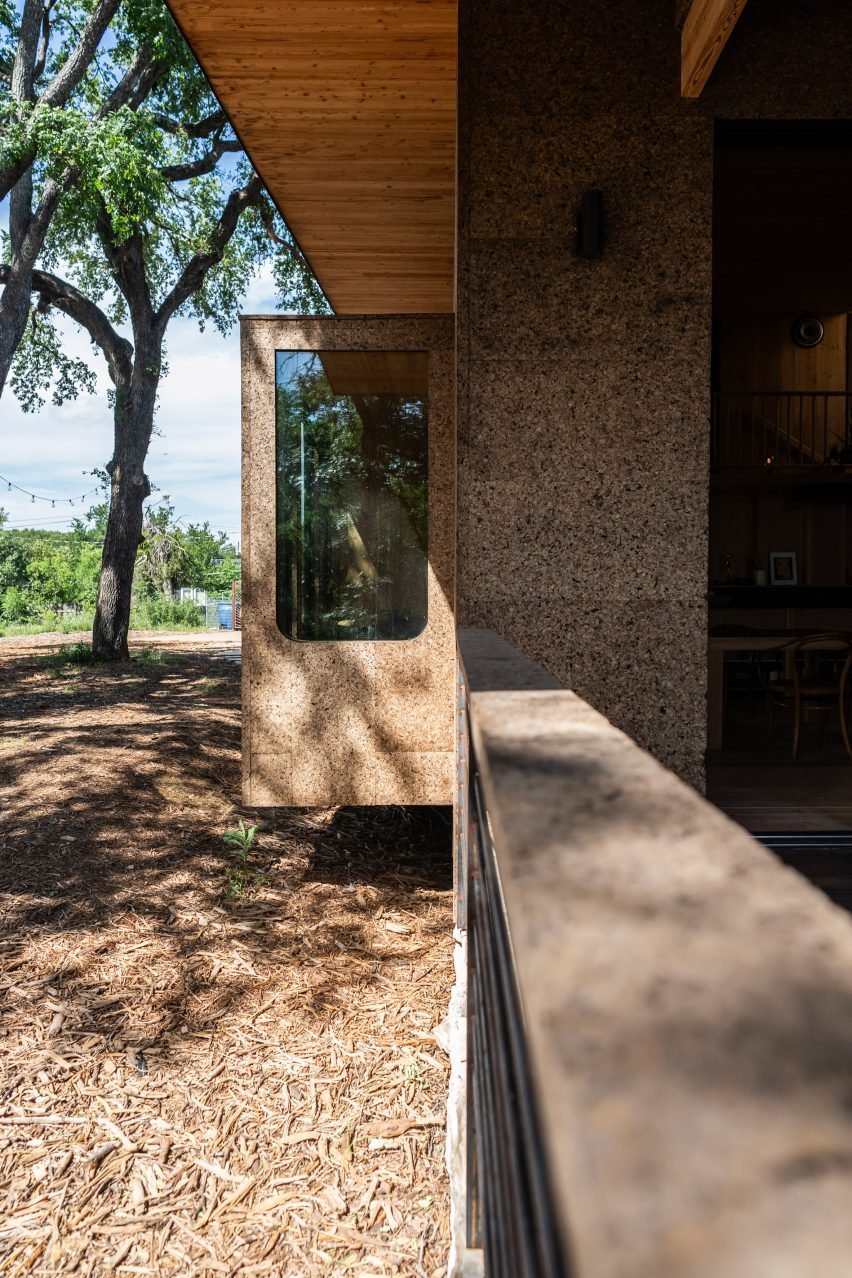
After working with the plant palette, Esparza launched Cross Cabin Build + Supply to advocate for and distribute low-carbon, healthy, bio-based building materials in Texas and throughout the southern United States.
Other projects that have favored plant-based materials include an apartment building in Madrid by Spanish architects Teo Nuñez and Almudena Ribot and a farmhouse in Navajeda, Spain, by Guera Arquitectura Cooperativa, both with a similar cross-laminated timber structure and cork cladding.
Photography by Daniel Cavazos and Casey Woods.
Project credits:
Architect and builder: Lunar Tower Design and Construction (Project Team: Greg Esparza, Frank Farkash, Hanna Johns, Leland Crosby, Jessica Cain, Jessica Painter)
Structural engineer: Apex Engineers (Matthew Umberger)
Landscape: Casey Boyter Gardens
Materials Supplier/Consultant: Cross cabin supply
Cork: Amorim cork insulation
#Moontower #Design #Build #Creates #PlantBased #Cabin #Austin